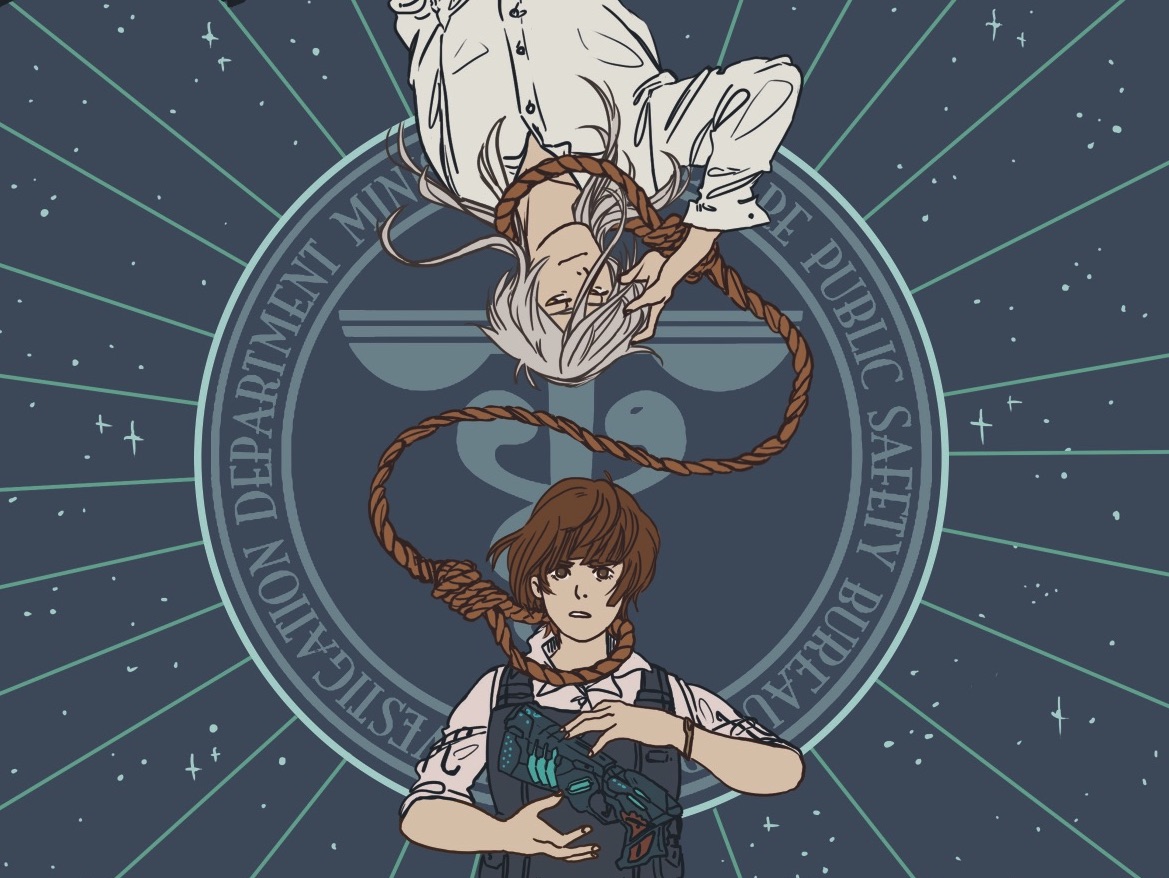The year is 2030. You live in a crumbling utopian cityscape. Your government is unveiling the newest technology for curbing crime. Law enforcement now relies solely on your demographics, past experiences and mentality to judge you. You don’t have to commit an actual crime to be eligible for punishment. It doesn’t even have to be probable — just possible. Blasphemous, right? However, the machinations of this world might be more tangled in reality than you or I care to admit.
This premise constitutes the allure of the critically acclaimed anime “Psycho-Pass.” Released six years ago this month, the cyberpunk thriller follows police recruit Akane Tsunemori as she grapples with the true definition of justice while apprehending a serial murderer. Throughout her journey, viewers become acquainted with the “Sibyl System,” a government-endorsed enterprise responsible for changing the face of the legal structure.
Despite its age and Japanese origin, “Psycho-Pass” has stumbled into a “woke” commentary on police culture in the United States since hitting the screen. I doubt the anime meant to make a contribution to the trend, but it managed to do so in a brilliant, yet subtle fashion.
How So?
Under Sibyl’s law, the police use firearms, called “Dominators,” to measure criminal predisposition. Once aimed at an individual, the Dominator returns a number from zero to 300. The higher the value, the higher the risk of lawbreaking. Anything that can impact one’s mental state contributes to the ranking, meaning disorders, economic status and everything in between can play a role. As a result, the cookie-cutter citizen is seldom deemed a criminal. Let me think. Where have I seen that one before?
Today, this standard hits close to home for a number of Americans in minority groups. Victim blaming and racial profiling are at the forefront of headlines and lawsuits alike. Regardless of your beliefs regarding justice system, forming assumptions about character and criminality based on anything but hard evidence is repulsive. Although the cast of “Psycho-Pass” contains little diversity, some characters are targeted with the same superficial standard of “proof” — thus mirroring similar concerns.
Shifting the Blame
Tsunemori’s initial foray into policing ends with the system’s wounds completely exposed. Tasked with catching a potential rapist, her division ventures into a seedy neighborhood and quickly eliminates (yes, I mean kills) the suspect. The situation sours when her colleagues shift the Dominator over to the assaulted woman. I’ll let you guess where this goes.
Yes, the Sibyl System really did that. Because her newly heightened sense of stress translates into a hefty score, the assault victim also becomes a guilty party. This is an obvious allusion to the concept of “victim blaming,” which a majority of women in the U.S. have to deal with.
The public and the police are keen to hold rape victims accountable for their role in the assault. Indeed, whether critics are blaming the victim’s skimpy clothing or dubious consent, the perpetrator rarely shoulders the entire burden of blame — sometimes not even the majority. In 2015, the controversial Brock Turner case showcased exactly this, pushing fault onto Turner’s victim for drinking the night of the rape. By electing for the sympathetic viewpoint of Tsunemori, “Psycho-Pass” has the audience immediately questioning the legitimacy of these fictional laws — and hopefully even their own.
The Power of Privilege
Conversely, antagonist Shogo Makishima is illustrated as a man of great luxury and even greater influence. Wielding his charisma and upscale education like a refined blade, Makishima manipulates others into killing in his stead. Eventually, he dabbles in the act himself.
When Tsunemori catches him moments prior to slitting the throat of a young woman, she aims the Dominator in his direction, expecting to finally stop his reign of terror. Unfortunately for her, it yields a minuscule number. The system refuses to judge Makishima despite him blatantly committing a crime.
Based on his status and wealth, I’m not confident the U.S. justice system would properly condemn him either. Those with similar assets, from politicians to police officers, often receive the same privilege as Makishima. The death of Trayvon Martin comes to mind, as the vigilante who shot him faced no legal consequences. Interestingly enough, that incident occurred seven months prior to the anime’s premiere.
Intentional or (probably) not, the dwindling faith present in Tsunemori’s eyes afterward certainly reflected the feelings of millions of Americans witnessing the verdict unfurl.
Ultimately, your favorite news station isn’t the only way to #StayWoke anymore. With anime like “Psycho-Pass” manning the helm, a greater understanding of social justice within the legal system is reaching a global audience — and I’m thrilled. After all, without a healthy level of awareness, the Sibyl System could be one step away from reality.

















